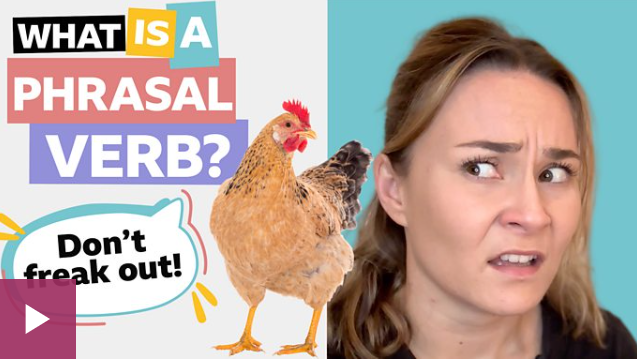Introduction
What are phrasal verbs and how do they work? Georgie gives you the answers.
Phrasal verbs mentioned
chicken out
decide not to do something because you are scared
- Mark said he’d go sky diving but chickened out at the last minute.
freak out
lose emotional control (from shock, excitement, fear etc.)
- Ellie’s freaking out because she’s doing a presentation for 100 people tomorrow.
get into (something)
start
- Everyone’s here at the meeting now so let’s get into it.
wake up
open your eyes and stop sleeping
- I don’t want to wake up early tomorrow. I want to feel fully rested.
put (something) on
get dressed into an item of clothing
- Fernanda needs to put on the silver dress before she walks on the runway.
pick (something) up
grab and lift something
- Please, pick up your clothes from the floor. It’s a mess in here!
turn (something) on/off
start or give power to something electrical or mechanical
- The bath is ready now, so you can turn off the tap.
stand up
rise to your feet
- Here, take my seat. I’ll stand up.
look after (someone or something)
to take care of someone or something
- I’ll look after you when you come home from hospital. I’ll make you meals and help you shower.
come back
return
- Daniel’s been travelling for a year, but he’s coming back next week.
TOP TIPS!
- If you see the word ‘something’, it usually means the verb requires an object.
- If ‘something’ is in the middle of the phrasal verb, it means that it can be separated by the object (but doesn’t have to be).
- If ‘something’ is at the end of the phrasal verb, it means it cannot be separated.
